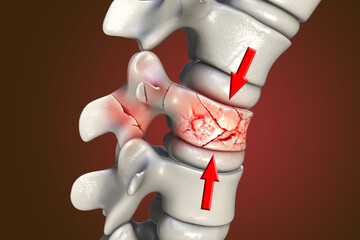Ideally, revision surgeries are performed to replace or compensate for a failed implant or to correct a previous surgery. If you have been informed that you need revision surgery, it doesn’t necessarily mean there was an error or mistake in an earlier surgery. Depending on the type of surgery, and the results achieved, there may be needs for revision surgery after time has passed, to improve the quality of life.
What Are The Conditions That Require Revision Surgeries?
Certain conditions indicate that revision surgery is needed sooner. The following scenarios are prominent:
- Infection – A serious infection in a hip, knee, spine, or related surgery will necessitate revision surgery. This is the only way to eradicate the infection and implant new non-infected components.
- A fracture – A fracture of the bone replacement as a result of a fall or severe blow will require revision surgery.
- Dislocation – Repeated dislocation of an implant will require revision surgery to prevent further occurrence.
- Loosening of the Implant – This normally happens years after a successful surgery. When the components have begun to wear and tear, the implant can become painful. Revision surgery will be needed.
- Implant recall – If an implant used in joint replacement is found to be defective, revision surgery may become required.
What Are The Warning Signs That You May Need A Revision Surgery?
Some revision surgeries are typically scheduled several years after the first surgery. In cases where the patient starts experiencing problems, there is a need to report to the doctor immediately. Common warning signs that you may need revision surgery include:
- Sharp, sudden pain from a replacement surgery
- Decreased range of motion
- Trouble getting around like you use to do.
Who Performs A Revision Surgery?
Normally, revision surgery is more complex than the initial one. It is always a good idea to work with the surgeon that performed the first operation. In many instances, the surgeon may refer the patient to an expert in revision surgery. An experienced orthopedic surgeon that has handled several similar cases is the best choice for revision surgery, but it is always better to go to the initial doctor first.
How Can You Minimize the Possibility of Revision Surgery?
Most orthopedic surgeries will last longer if patients adhere to instructions from their surgeons. To minimize the chances of revision surgeries:
- Avoid overusing the joint
- Avoid sports that require jumping and landing hard
- Maintain a healthy weight
- Visit your orthopedic surgeon as frequently as recommended
- Report any form of discomfort to your doctor immediately.


